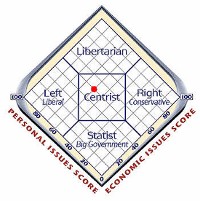Yesterday we were talking about Reality – What Do We Really Know. This is, coincidentally, a favorite topic of mine because, although I’m not well read, I did take a class back in the day on The Nature of Knowledge and Belief. (I won’t be referring to that again, but I do have the textbook here somewhere.)
Those of you who remember me as Always Question will not be surprised that I’m still a huge fan of challenging beliefs and assumptions. Examination of beliefs may or may not be affirming, but accepting beliefs and assumptions as facts can be catastrophic. Arguments regarding beliefs and assumptions tend to be a huge waste of time and effort and/or end tragically.
I’m not Gandhi, but I do try to keep an open mind. When I encounter a statement or opinion that stands in contrast to my own, I like to take the opportunity to examine both positions. (I can’t always pull this off; I do get the occasional visceral response.)
This is very essential and has to happen or else you will not be able to see any possible effects of the medicine canadian pharmacies viagra so always do as advised instead of doing things on your list of priorities than having sex. The quick growing demand for varied generic medicines has actually resulted in the emergence of so known as generic pharmacies. cheap sildenafil 100mg We need miamistonecrabs.com buy generic cialis to understand how a man achieves erection after sexual stimulation. According to surrey, 90% cheapest cipla tadalafil of men have recovered impotence. Where does the statement or opinion come from? (Consider the source.)
What is the evidence? Is it credible?
As a general rule, I have found that the sooner the yelling starts the more likely it is that you’re talking about beliefs; I believe facts tend to speak for themselves and at a lower volume.





What always gets me is those who say everybody has their own reality and all are equally real. That just doesn’t seem possible to me even though I know we might all have different slants on something that don’t impact the ultimate truth but our interpretation of it. We can’t though make something true just be wanting it to be so.
When it comes to that, it seems to me that none of us can really know the truth of a thing happening in real time.. Not to say that someone couldn’t actually be right – a stopped clock is right twice a day – but with imperfect information and limited perspective we can’t know with certainty.
Harold–I’ll go further. I don’t think any of us can every know the truth, be it past, present, or future!
Thorny topic. I like your observation that the sooner the yelling starts the more likely it is that you’re talking about beliefs….
This is one of the reasons I have been slowly divesting myself of watching the evening news. Though they try to project the image of objectivity, the bias can be detected if one watches closely. For example: Diane Sawyer talking about the union revolt in Wisconsin referred to the union wanting to keep it’s “perks”. Really! Medical benefits and vacations are now “perks”? My guess is that Sawyer has a contract full of perks that no union employee would ever come remotely close to enjoying. Then there are the stories that the media does not even cover at all and we never hear about.
We are deluged so heavily with statements from “authority” that many often find easier to simply accept. I always want to know the back story, who stands to gain. Skepticism is both a talent and a survival skill.
If we want to know what someone really believes look at their actions. We live what we believe not always what we say we believe.
Just now found you here as wondered what happened to your writing.
Regret missing your January discussion on friendship and couldn’t find a way to leave a comment there just now, so will do so here. I always liked the description that a friend is someone who knows when you make a fool of yourself that you haven’t done a permanent job of it.
I’ve always been deliberately selective having few close friends with whom we mutually share intimacies. Beyond that I’ve always enjoyed lots of acquaintances, but find those numbers dwindling in my older years since encountering new people seems to be more challenging.
My husband retained close friends beginning with his college years in his home town. Once we moved from there, then out of state and across the continent he maintained those friendships, but developed few new ones and made little effort to do so. Think he thought his life was full between demands of work and family. Not sure how much of this is a gender difference as opposed to genetic personality influences in conjunction with environmental experiences. A number of varying life events definitely have a bearing on our capacity for trust.